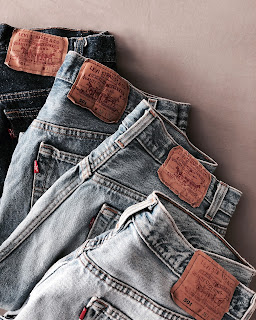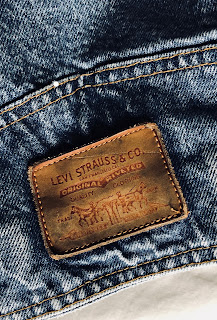 |
I've been researching vintage for decades since I've been collecting and wearing vintage clothing for decades.
But when I opened my vintage shop in 2010, my research took on a whole different meaning: I was now researching for my customers. To accurately describe the items I was listing, I had to make sure that what I was listing was backed by details that could prove its provenance.
And if I could find a back story (or back history), then I needed to add that information to the listing (and my brain for future reference).
Plus, if I didn't know something about an item, I didn't want to guess or make something up - that's not honest, and in my opinion, unethical. If I'm selling vintage, I want my customers to truly know what they have.
But, research on the internet is overwhelming. There are more opinions than facts. And I needed facts to verify the authenticity and veracity of the pieces sold in my shop.
After years of researching, I've become proficient in finding sites that give real information. These are sites that are in it for the love of history, and the preservation of the past, and give us researchers a way to use their data to verify our vintage.
Here are some of the best sites that go over vintage in various categories that you may find helpful in your vintage researching future. There are three different ways to go about this.
1. eBay and Etsy
This is by far one of the simplest and easiest (and most current) ways to check out what comparables are out there. If you've got a fuzzy Kurt Cobain-style mid-century cardigan you want to sell, type this into the search bar at eBay You can find current comps for sale, and even better, go to the "sold" section, click that category, and find out what recently sold and for what price. Etsy is a fantastic search engine as well. While you can't find sold items the same way you can on eBay, you can do comparison searches and find what your item is going for.
2. Search Engine Style Websites:
Many websites deal directly with antiques and collectibles. There are quite a few to choose from. Some are free, but many also require a subscription and /or payment to gain access to their information. Worthpoint is a great example of this. You need to have an account (paid) to get the item's prices, current or sold. But you can search for free to see what's out there.
For example, I researched "1960s Cowichan sweaters" and a couple hundred results came up with links to eBay and other auction sites. So, Worthpoint is like a search engine. While you can research on your own, like I mentioned in point number one, websites like Worthpoint do the work for you. If you're willing to pay a little bit, this may be a perfect choice.
3. Smaller Niche Websites:
This will require you to do the most research. But, I've found these small er websites to be packed full of information. I love Levi's. It's been a staple for the northern California community for the last 150 years, so as a fellow Norcalian, it's a part of my vintage selling as well. (And wardrobe!) So, for me, when I find a pair of vintage Levi's that I'm unsure of on the date, I have a fantastic niche website I use to research called Heddels.
They give the most in-depth information regarding vintage Levi's jeans as well as jean jackets, and tons of articles on all sorts of other items like backpacks, scarves, bandanas, etc. It goes on and on. Everything they write and research is what I love to sell in my shop. So, I bookmarked this website and use it heavily. The site is nuanced toward heritage fashion, which is what I prefer to sell, so this niche website is great for me.If you have specifics you want to sell, search out other websites. They are out there.
Remember, finding information about your item takes time. This world wide web of ours is both a gift and a curse. It's a gift because we get to find so much about so much. But it's a curse because of exactly that: there's so much to wade through. It's difficult combing pages just to find out a tidbit or two.
Of course, there are plenty of books available that can help to identify, date, and name what you have. A simple search on Amazon will reveal what's available.
The research process is as pleasant or as painful as we choose. I believe we're blessed to have information like this at our fingertips: research from all over the world all in one place.
Treasure hunting takes time, and so does researching our treasured finds. But in the end, when you find what you're looking for, in person and online, it makes the search worthwhile. Knowledge gained is knowledge you'll know forever.
Happy researching!







%20Postcard.jpg)



No comments:
Post a Comment